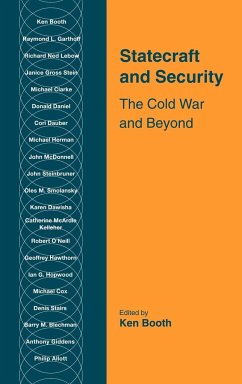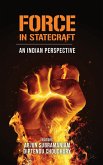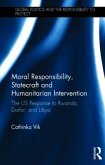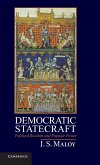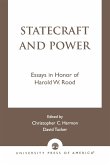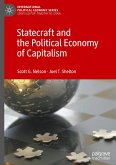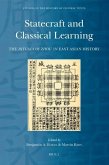In this book a group of influential and distinguished scholars analyse some of the key questions in contemporary international relations. The book is in three parts. In the first, the lessons and legacies of Cold War are examined, including debates about its rise and fall, and the implications of the superpower nuclear confrontation. Part II asks questions about powers and politics in the post-Cold War world: the USA's potential as a world leader, Russia's troubled future, Japan's potential power, the China syndrome, and Africa's problems. The final part looks further into the future, discussing international organisation, life politics, and the potentialities for human society under the conditions of globalisation. The book shows how different countries and different groups of countries are confronting urgent issues of statecraft in a period of radical global transformation.
Table of contents:
Introduction Ken Booth; Part I. Cold War: Lessons and Legacies: 1. Cold Wars of the mind Ken Booth; 2. Who is to blame for the Cold War Raymond L. Garthoff; 3. Nuclear lessons of the Cold War Richard Ned Lebow and Janice Gross Stein; 4. A Cold War life, and beyond Ken Booth, Michael Clarke, Donald Daniel, Cori Dauber, Michael Herman and John McDonnell; Part II. Post-Cold War: Power and Policies: 5. Can the United States lead the world John Steinbruner; 6. Can Russia escape its past? Oles M. Smolansky; 7. Imperialism, dependency and autocolonialism in the Eurasian space Karen Dawisha; 8. Western Europe: challenges of the post-Cold War world Catherine McArdle Kelleher; 9. Europe and the wider world: the security challenge Robert O'Neill; 10. A new Japan? A new history? Geoffrey Hawthorn; 11. New China, new Cold War? Michael Cox; 12. Africa: crisis and challenge; 13. Of medium powers and middling roles Denis Stairs; Part III. Beyond: Resistances and Re-inventions: 14. International peace and security in the twenty-first century Barry M. Blechman; 15. Affluence, poverty and the idea of a post-scarcity society Anthony Giddens; 16. The future of the human past Philip Allott; Conclusion: security within global transformation Ken Booth; Index.
This book shows how different countries and different groups of countries are confronting urgent issues of statecraft in a period of radical global transformation. An influential and distinguished group of contributors examine the lessons and legacies of the Cold War, the key powers and their policies in the post-Cold War world, and changing ideas about human society at a time of transformation. The book will help readers to think about statecraft and security in the first truly global age.
A comparative analysis of international security issues in the post-Cold War era.
Table of contents:
Introduction Ken Booth; Part I. Cold War: Lessons and Legacies: 1. Cold Wars of the mind Ken Booth; 2. Who is to blame for the Cold War Raymond L. Garthoff; 3. Nuclear lessons of the Cold War Richard Ned Lebow and Janice Gross Stein; 4. A Cold War life, and beyond Ken Booth, Michael Clarke, Donald Daniel, Cori Dauber, Michael Herman and John McDonnell; Part II. Post-Cold War: Power and Policies: 5. Can the United States lead the world John Steinbruner; 6. Can Russia escape its past? Oles M. Smolansky; 7. Imperialism, dependency and autocolonialism in the Eurasian space Karen Dawisha; 8. Western Europe: challenges of the post-Cold War world Catherine McArdle Kelleher; 9. Europe and the wider world: the security challenge Robert O'Neill; 10. A new Japan? A new history? Geoffrey Hawthorn; 11. New China, new Cold War? Michael Cox; 12. Africa: crisis and challenge; 13. Of medium powers and middling roles Denis Stairs; Part III. Beyond: Resistances and Re-inventions: 14. International peace and security in the twenty-first century Barry M. Blechman; 15. Affluence, poverty and the idea of a post-scarcity society Anthony Giddens; 16. The future of the human past Philip Allott; Conclusion: security within global transformation Ken Booth; Index.
This book shows how different countries and different groups of countries are confronting urgent issues of statecraft in a period of radical global transformation. An influential and distinguished group of contributors examine the lessons and legacies of the Cold War, the key powers and their policies in the post-Cold War world, and changing ideas about human society at a time of transformation. The book will help readers to think about statecraft and security in the first truly global age.
A comparative analysis of international security issues in the post-Cold War era.

